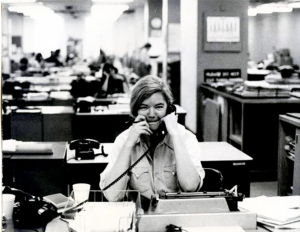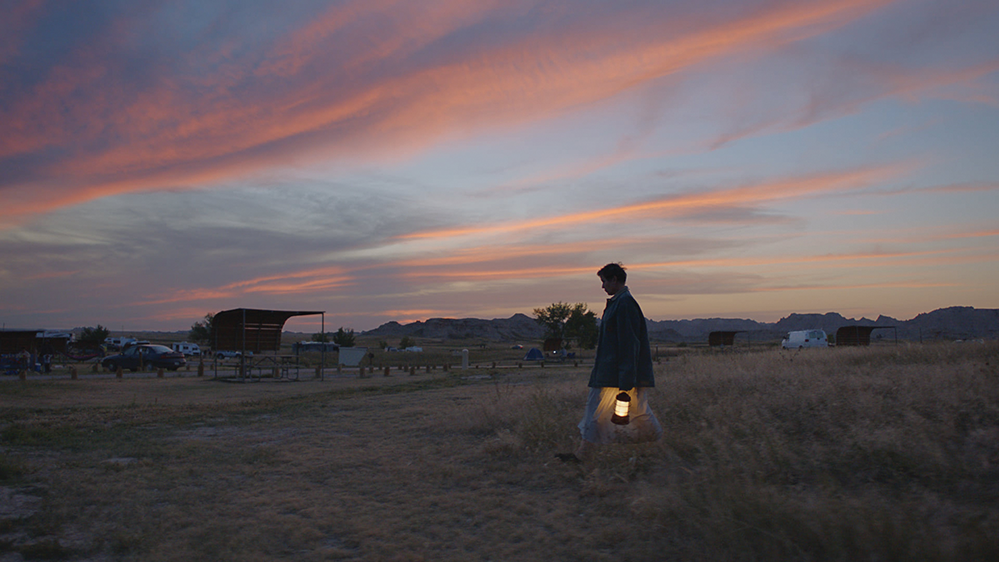★★★★★
Director Janice Engel’s latest documentary, “Raise Hell: The Life & Times of Molly Ivins,” enshrines the life, legacy and wit of acclaimed journalist Molly Ivins, a charismatic and confident 6-foot tall liberal woman from Texas, with a well-paced tribute film that captures the charm and moxie of its subject.
The film boasts an impressive lineup of interviewed guests, including acclaimed journalists such as Rachel Maddow, Anne Lamott and Victor Navasky, as well as a rich array of people near and dear to Ivins herself. The resulting film presents a tableau that covers nearly every relevant aspect of the journalist’s life, while still maintaining the spark and energy she radiated to those around her.
Engels uses the natural chronology of Ivins’ life to make up the bulk of the story line for the documentary, showing the journalist’s evolution from a child growing up in a wealthy conservative family into a staunchly progressive writer and advocate.
Ivins’ political transformation is fascinating to watch unfold, in large part due to the conservative nature of her home state, Texas. The film does a great job reminding its viewers that Ivins grew up in a place where the “American self-identity was on steroids” — meaning, of course, that the political majority surrounding her at the time was almost entirely conservative. Forrest Wilder, an editor of the Texas Observer, drives this point home during the documentary by remarking, “Texas is more American than America is.”
Thus, Ivins’ evolution towards a more radically left worldview is all the more enticing given the context in which she grew up. “Raise Hell” hits all the right landmarks in Ivins’ life — from arguing with her father about politics at the dinner table to moving all the way to Massachusetts to attend Smith College — to ensure this progression feels natural.
The documentary also highlights Ivins’ intersection and involvement with the burgeoning civil rights movement in America during the 1960s. Working in Texas, a state wracked with institutional racism as well as one where the civil rights movement failed to gain a lot of traction, she defied the odds of her upbringing by becoming an outspoken supporter of the civil rights movement through her cutting criticism of the Texas legislature.
Engel’s juxtaposition of Texas’ conservatism with Ivins’ unabashed liberalism serves to show just how she used her education to help elevate silenced voices in light of systemic oppression.

Ivins died in 2007 from breast cancer, but Engel does not let Ivins’ current absence impede on her ability to pay tribute to the famed journalist. The documentary is saturated with footage from throughout Ivins’ life — clips of her in interviews and talks, dubbed-over written letters and candid photographs of her from various eras of her life.
Through these primary sources, we are given a window not only into the narrative arc of Ivins’ life, but into the charisma, quips and sense of humor that became so closely tied to her identity and her politics.
Despite the sheer amount of material used to tell Ivins’ story here, the editing in “Raise Hell” remains impressive and fluid. Old video clips and archival material are interspersed with photos from Molly’s young adulthood and layered with clips of current interviewees as well as Texan country music.
Each interview clip links thoughtfully and purposefully to the next and weave together to form a 93-minute narrative that flows seamlessly. Though the source material already proves interesting, the pacing in this documentary lends itself to a certain momentum that prevents the documentary from dragging on.
“Raise Hell” does not include many voices in opposition to Ivins’ politics or life journey. However, this doesn’t mean that the documentary’s portrait of her lacks depth. Engel still provides a holistic view of Ivins and her life. Most notably, her onscreen friends’ and family’s discussion of her struggles with alcohol helps humanize her without getting in the way of appreciation for her work.
“Raise Hell” humanizes and pays tribute to the trailblazing Molly Ivins. Engel demonstrates a genuine appreciation for the journalist’s work without over-fawning and romanticizing her impacts. The film serves as a reminder for why people loved Ivins so much during her heyday and introduces the journalist to a new generation of activists and change-makers.



















